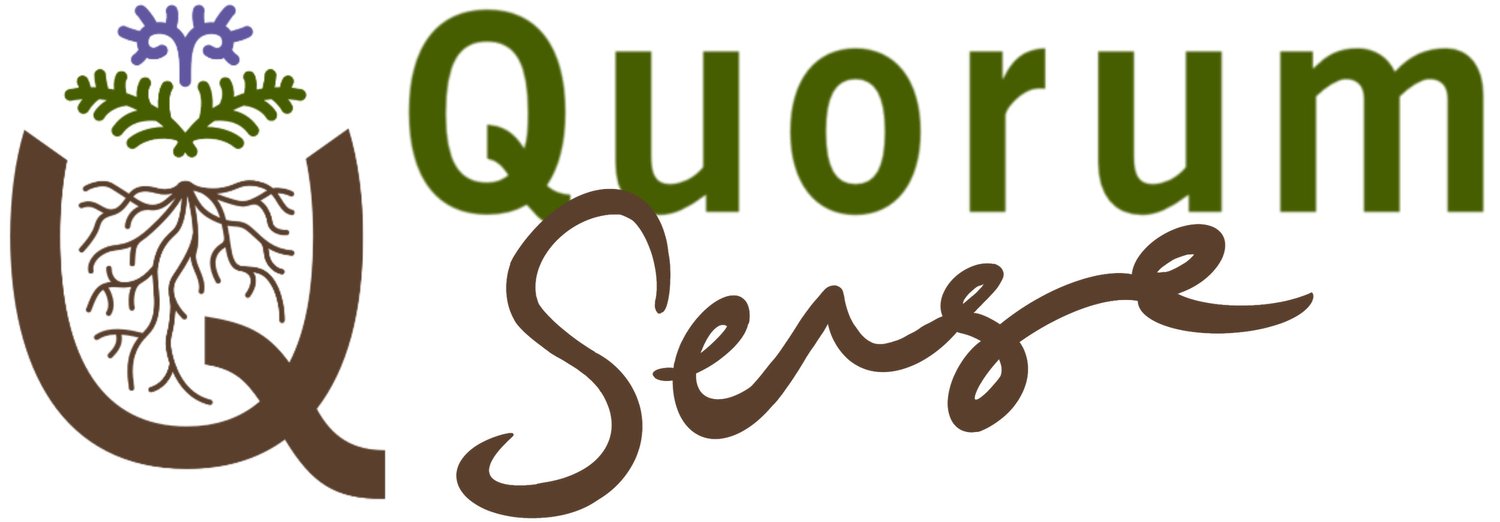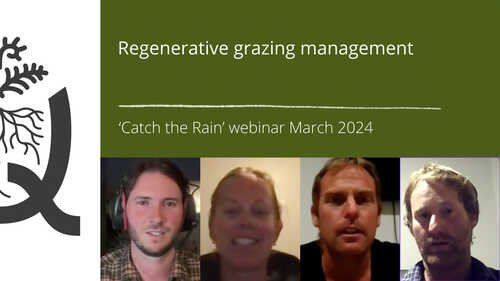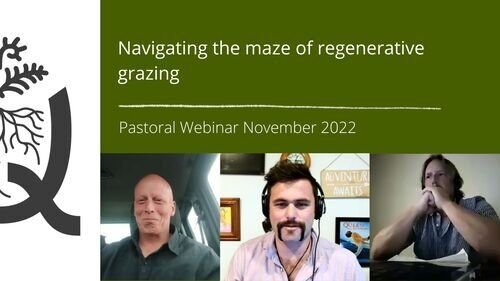How Miah & Jenny Smith built a healthier, resilient and low-stress dairy system
Video description: Miah and Jenny Smith talk about their transition to regenerative dairying, and the animal health, financial and personal benefits they’re now enjoying.
In 2018 Miah and Jenny Smith began transitioning their 520 cow dairy farm to regenerative management. Five years on, animal health has dramatically improved, input costs have reduced, profitability has improved and farming has become less stressful and more exciting.
This case study explores their drivers, the changes made, the results achieved. Plus the things that Miah and Jenny have learned along the way and where they have their sights set next.
“…going back to farming how you want to, rather than following a script, has been quite exciting!”
Miah Smith, Bay of Plenty dairy farmer
The Smith’s journey to regenerative dairying
Farm outline
Who: Miah and Jenny Smith - Wilith Farm
Location: Atiamuri (between Rotorua and Taupo)
Farm: 280ha rolling to steep country with pumice/ash soils 210ha milking platform 520 jersey cross cows
Goals: Resilience to climatic conditions Non-prescriptive farming Healthy soils, healthy cows, healthy people
Key practice changes
Started applying fertiliser in liquid form, adding biostimulants (Agrisea), fish, humates etc
Diversified pasture species (red clover, white clover, chicory, plantain, ryegrass, cocksfoot, fescue)
Extended summer grazing round lengths - now 25-30 days in spring, extending to 55-55 days in summer utilising deferred grazing areas, diverse summer crops and supplement if required.
Cows get a daily dose of Agrisea Animal Nutrition
Once-a-day milking
Reaping the benefits of a regenerative approach
Tracking improvements in finances, fertiliser and animal health
The graph presents three-year averages comparing the Smith’s previous twice-a-day conventional system with the new once-a-day regenerative system. The first year of regenerative transition (2018/19) is not included.
Click through the tabs on the graph to see the different metrics.
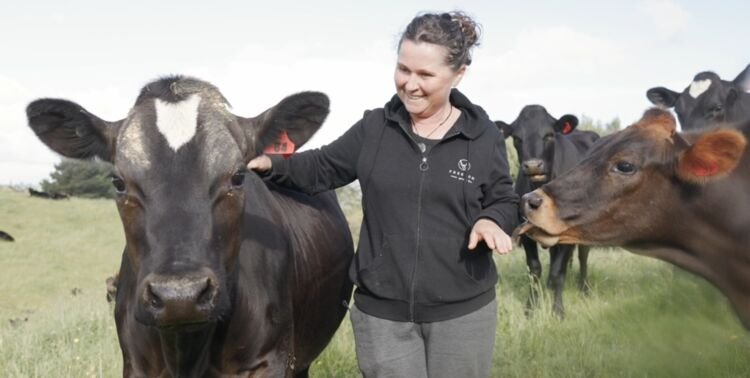
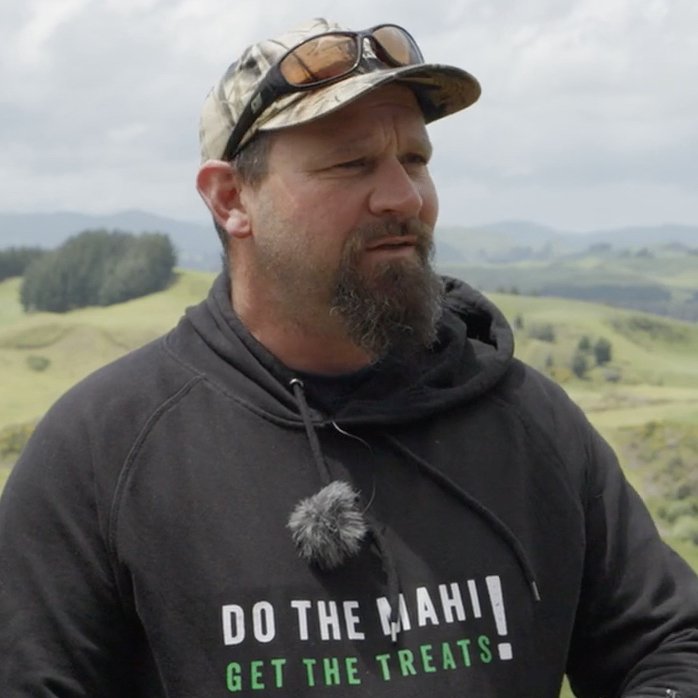
“Do trials and change your whole farm slowly… it’s not an instant change. You’re working with mother nature and slowly will get you there.”
Miah Smith, Bay of Plenty dairy farmer
Related content on: grazing management
Sam Lang is joined by guest farmers Dave Mitchell and Duncan Humm share how they (and other farmers) are successfully incorporating diverse forage crops into their farm systems.
Dean Martin’s adaptive grazing management is growing soil organic matter, deeper rooting plants and supporting a sheep-based system built around thriving soil.
Host Sam Lang and guest farmers Rhys Roberts (Align Farms) and Miah Smith explore techniques, successes and challenges bringing diverse pastures into NZ farming systems.
Hear from Mark Koopmans (North Canterbury), Jono Frew (Otago) and Russell Heald (Manawatu) as they discuss the practice of deferred grazing in New Zealand.
Hear from Mark Koopmans (North Canterbury), Rachel Short,(Taranaki) and Ross Johnson (Wairarapa) as they discuss regenerative grazing systems, techniques and farmer-led research.
Hawke's Bay's Michael Reilly and Taranaki's Rachel Short share their experiences with livestock collar technology. What role can it play in NZ farming systems? What are the opportunities and concerns?
Insights from four experienced livestock farmers who’ve developed their own unique regenerative approaches to regenerative livestock production.
The Bielski’s have tried, tested and evolved a high performance sheep grazing, cropping and pasture management system that's resilient, low input and profitable.
Five years in, Miah and Jenny Smith reflect on their regenerative dairying journey and the dramatic improvements in animal health, margins and their own quality of life.
Father and daughter duo Shane Birchall and Meghan Schutt share their learnings and experiences in transitioning to a self-sufficient, low waste dairy and beef farm operation.
South Otago's Pete Blair and Hawke's Bay's Michael Reilly compare experiences navigating the multi-faceted maze of regenerative grazing techniques in very different contexts.
Michael Reilly shares the ups and downs of his journey from Sydney suburbia to regenerative Hawkes Bay farmer, and what's changed along the way.
Improving livestock integration into cropping systems can bring a wide range of benefits and displace the need for increasingly expensive inputs.
In this Quorum Sense webinar we will be focusing on grazing management and planning in a New Zealand landscape.
Regenerative coach, pastoral farmer and market gardener Jules Matthews explores the challenges and opportunities within complexity, and the uncertainty it calls us to embrace.
This April 2021 webinar features four farmers panelist: Mark Anderson (Dairy), Rachel and Kenneth Short (Dairy)and Dean Martin (sheep and beef).
Pastoral farmer and grazing coach Siobhan Griffin shares her passion for regenerative pastoral farming, the opportunity to benefit farmers, consumers and our climate.
Regenerative farmer and grazing coach Siobhan Griffin talks about increasing soil organic matter, growing more grass, reducing costs and improving milk and cheese quality.
Mark Anderson's South Otago dairy farm has adopted a bale grazing wintering system that’s shown dramatic improvements for soil health and animal welfare.
Josh Bradfield farms on the rolling hills on the north of the Clutha River, adding diversity to his pasture, decreasing inputs and reducing tillage.
“Coming into farming on our own account without much experience meant we weren't tied to tradition and weren't afraid to try new things.”
This April 2021 webinar features four farmers panelist: Mark Anderson (Dairy), Rachel and Kenneth Short (Dairy)and Dean Martin (sheep and beef).
South Otago dairy farmers Mark and Madeline Anderson are on a pathway to lower inputs and improved soil health using regenerative principles.
This February 2021 webinar features four farmers: Jules Matthew (Sheep & Beef), Hamish Bielski (Sheep & Beef), Miah Smith (Dairy) and Mark Anderson (Dairy).
In this second episode, Hamish Bielski gives an insight to how his grazing management and recovery works and the advantages he has observed.
Ten years of higher grazing densities & longer recoveries have transformed Dean Martin’s previously unproductive pastures - ewes & lambs are now thriving on it!
South Otago sheep and beef farmers Amy and Hamish Bielski have spent four years using regenerative principles, focusing on adaptive, high density grazing management.
Hamish Bielski talks about his experience and advice for managing stocking rates, grazing densities, pasture growth and recovery periods post-drought.
South Otago sheep and beef farmer Hamish Bielski shares what he's learned over the last 3-4 years in creating a productive, profitable, and regenerating operation.
Disclaimer: The information, opinions and ideas presented in this content is for information purposes only and does not constitute professional advice. Any reliance on the content provided is done at your own risk. (click here to view full disclaimer).
